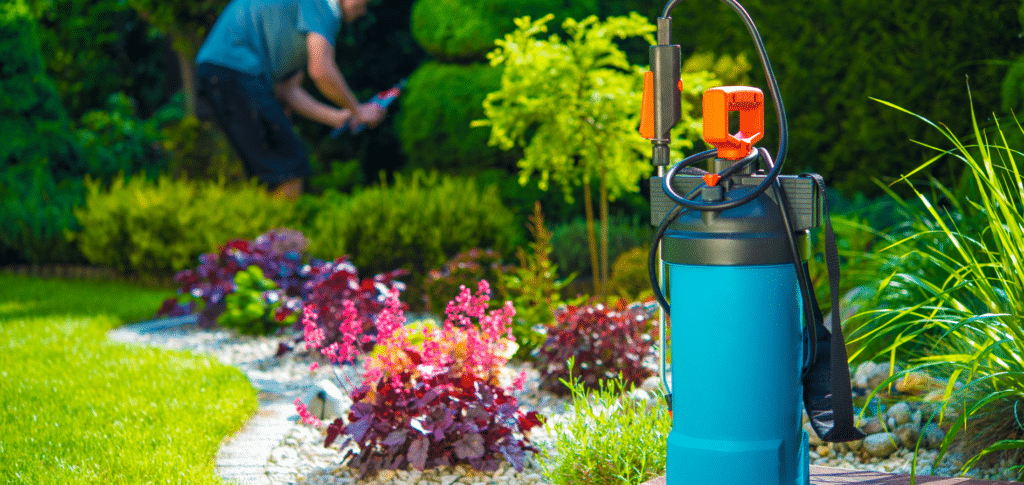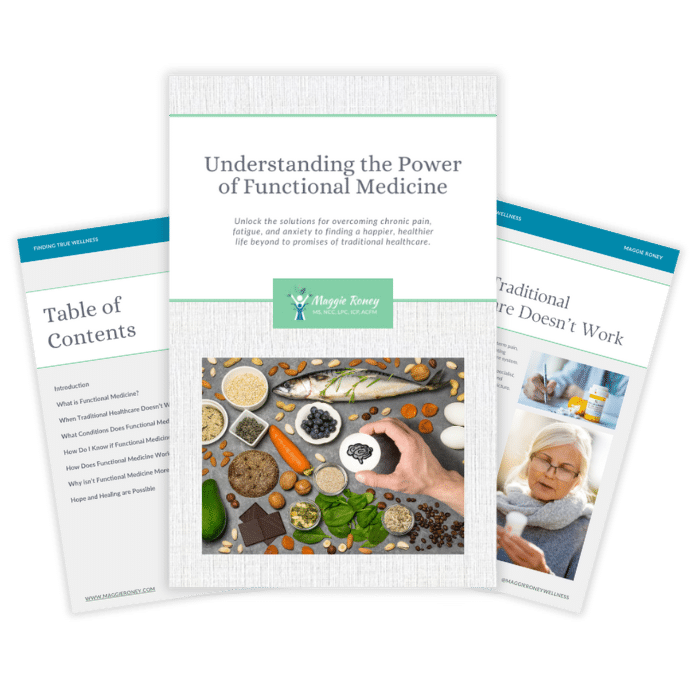So it’s little wonder that people go to great lengths to eradicate pests.
For many, the common approach is to use pesticides. They’re effective, easy to use, and relatively inexpensive. What’s not to like?
Actually, quite a lot. There are many dangers in pesticides. In this article, I want to share with you the dangers of using pesticides and what you can safely do instead to repel any annoying pests.

What are pesticides?
By definition, a pesticide is a substance used to kill (and sometimes prevent the return of) organisms that can harm or destroy grass, landscaping plants, animals (including pets), and even people.
Broadly, the term pests includes harmful plants, funguses, insects, and other animals. In practice, though, pesticides are usually for controlling insects and other animals while herbicides (and fungicides) are for controlling weeds, funguses, etc.
Most pesticides are chemical-based products that kill the target species that come into contact with them. In some cases, they also create an environment unfavorable to those species returning.
Put more succinctly, pesticides are poison.
Why are pesticides dangerous for our health?
Pesticides can be highly effective, but since they are technically poisonous, they present risks to non-target species, to the environment, and to humans as well.
While there are species-specific pesticides, most pesticides available at your local store have a broader application.
That means they can kill animals you like and want to have around, such as butterflies and birds. Pesticides, if not applied properly, can also wash away into watersheds and contaminate the bodies of water that we recreate in, fish from, and get our drinking water from.
Worst of all, pesticides can be harmful and even fatal to us and our loved ones. Here are just some of the many dangers in pesticides we humans can experience if we come into contact with or ingest them:
● Blurred vision
● Diarrhea
● Difficulty with breathing, concentrating, or remembering
● Dizziness
● Excessive eye-watering and/or salivation (in other words, unexpected and uncontrolled crying and drooling)
● Fatigue
● Headaches
● Muscle weakness
● Nausea and vomiting
● Stomach cramps
● Sweating
● Just not feeling well in general and there’s no other likely cause
If you see one or more of these symptoms and think the person may have been exposed to a pesticide, seek medical attention immediately. Not doing so could result in permanent health problems.
Long-term exposure to pesticides may also increase:
- Risk of some cancers
- Wiping gut flora or bacteria (the good bacteria important for digestion and regulation)
- Presence of chelators, which bind to the minerals and vitamins the body needs to function well
- Amount of endocrine disrupters, which alter various hormones leading to abnormalities in reproductive organs, nervous system function, immune function, and respiratory problems
Which pesticides should you avoid?
We do not want to malign any specific brands, so here are some ingredients to avoid in common pesticides:
● Bifenthrin
● Carbaryl
● Glyphosate
● 2,4-D
Alternative Approaches to Pest Control
At this point, you’re probably leery of using pesticides, and for good reasons.
So what are the alternatives?
Here are some non-toxic approaches to pest control:
● Biopesticides are living things or naturally occurring compounds that deter pest growth and activity.
● Use pesticides that the EPA determines as being minimum-risk. Any company selling a product that has earned this label will clearly market it as such.
My favorite recommendation:
● Use plant-based pesticides of the highest purity that are safe to use on your lawn and in your home.
One of the most popular plant-based pesticides is Wondercide, a non-toxic solution to repelling pests, fleas, and mosquitoes without compromising your safety and health.
Next, let’s talk about how to use pesticides outside safely:
● Verify that all doors and windows are closed.
● Get all pets inside. Also, get anything they sleep in, chew on, etc. inside.
● Cover sensitive spots such as fish ponds and grills.
● Keep your property and your pets clean. Food and trash attract insects, rodents, and other unwanted visitors. Make your place less inviting.
How do I know if the pesticides I’m using are affecting my health?
Have you used common pesticides in and around your home recently? Do you experience any symptoms related to pesticide exposure?
The most effective way to tell if exposure to pesticides has impacted your health is by participating in muscle testing or nutrition response testing. Muscle Testing is a non-invasive system of analyzing the body to determine the underlying causes of ill health, specifically used to identify chemical sensitivities and imbalances.
If you are interested in learning more about how muscle testing can help you identify related symptoms and issues of pesticide exposure, please contact me today.


